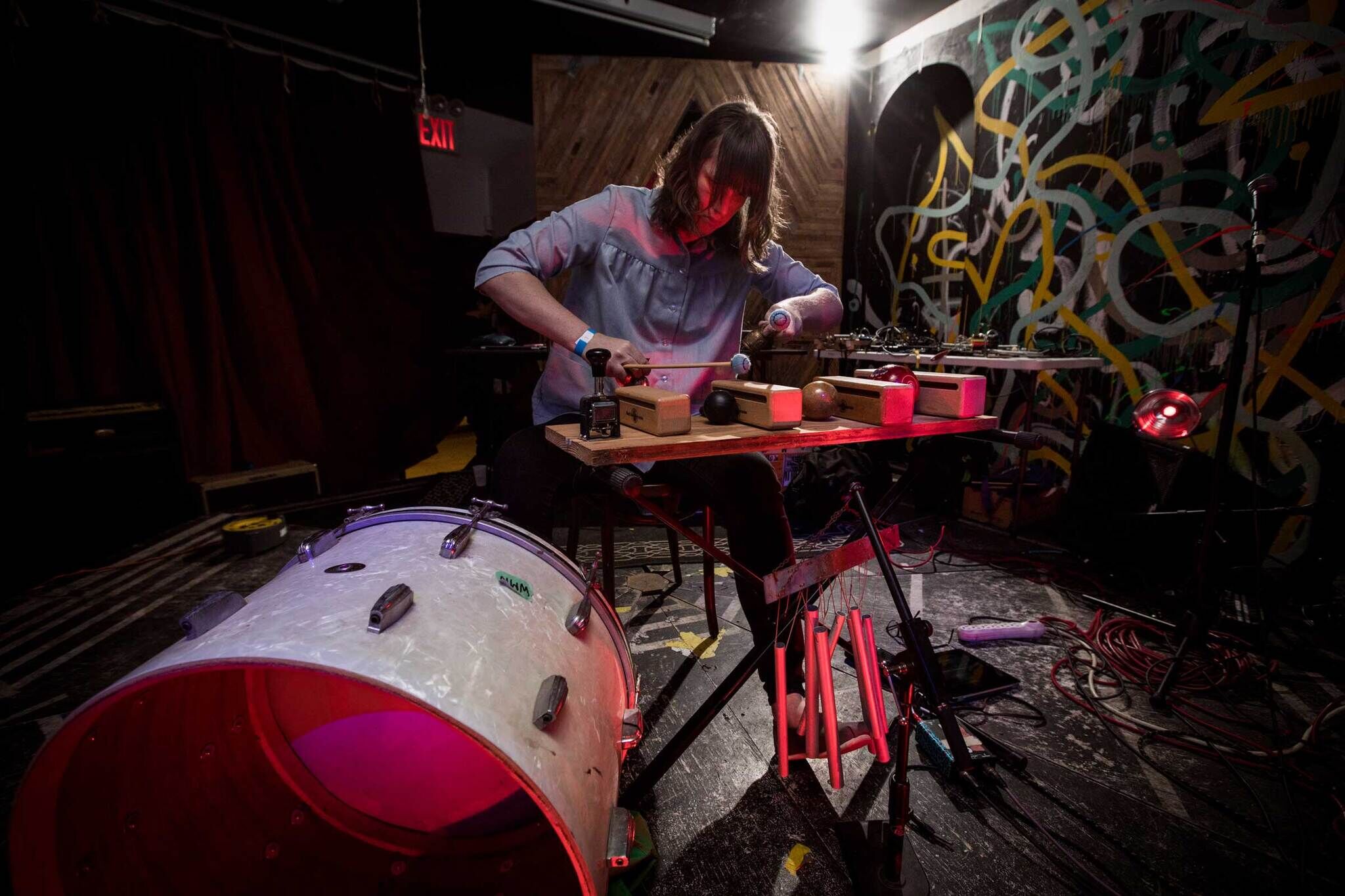Whitney Biennial 2024: Even Better Than the Real Thing | Art & Artists
Mar 20–Aug 11, 2024
Whitney Biennial 2024: Even Better Than the Real Thing | Art & Artists
Sarah Hennies (she/her)
18
Performance
Born 1979 in Louisville, KY
Lives in Red Hook, NY
Composer Sarah Hennies learned about the neurological theory that gives Motor Tapes its name from the book Musicophilia: Tales of Music and the Brain by Oliver Sacks (1933–2015). It discusses the theory by the neuroscientist Rodolfo Llinás (b. 1934), which proposes that our thoughts, memories, and physical movements operate through a series of “looping tapes,” pre-existing units that help our brains more efficiently perform common, repetitive tasks. When she encountered the theory, Hennies had long been using repetition in her compositions, in part as a response to the fundamental necessity of repetition for basic bodily functions, such as breathing and the beating of the heart. Confronted with the idea that thought, memory, and even identity hinged on looping repetition, Hennies experienced a sense of recognition and possibility that led to the making of Motor Tapes.

